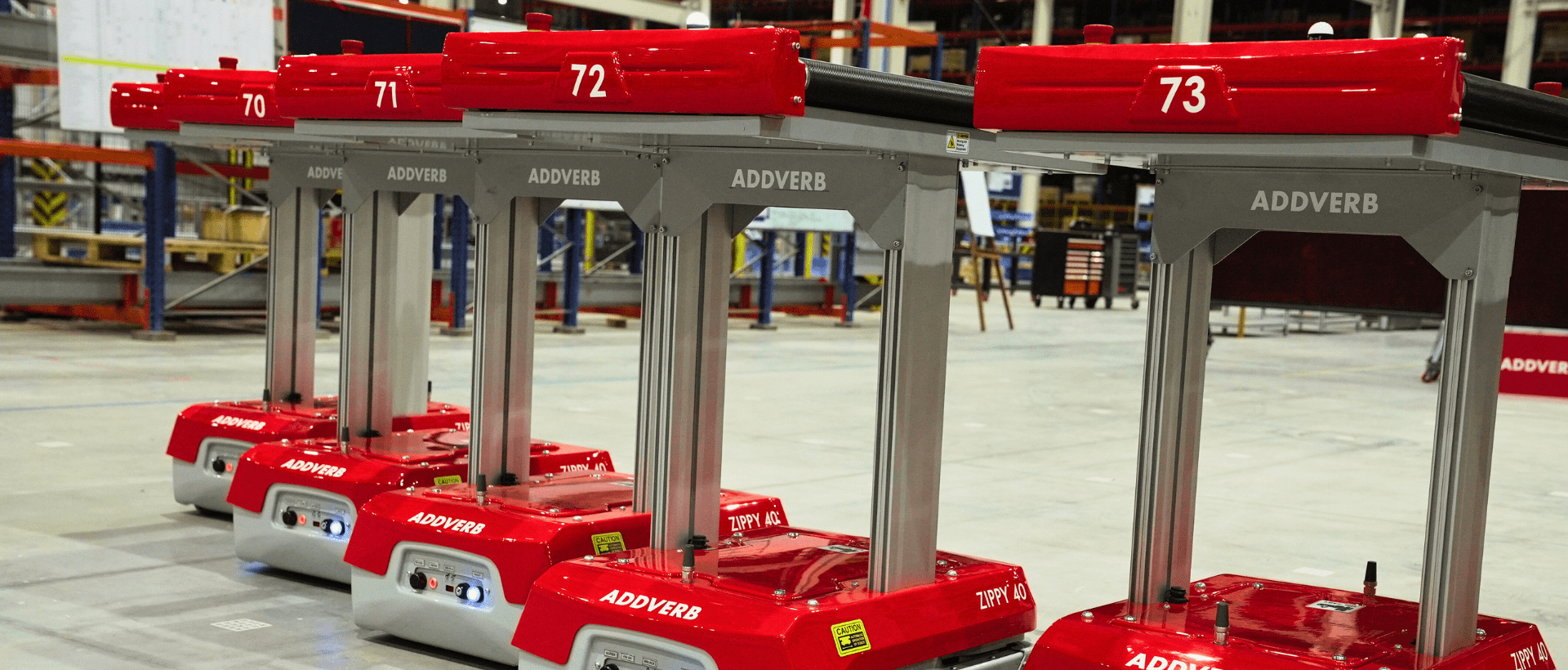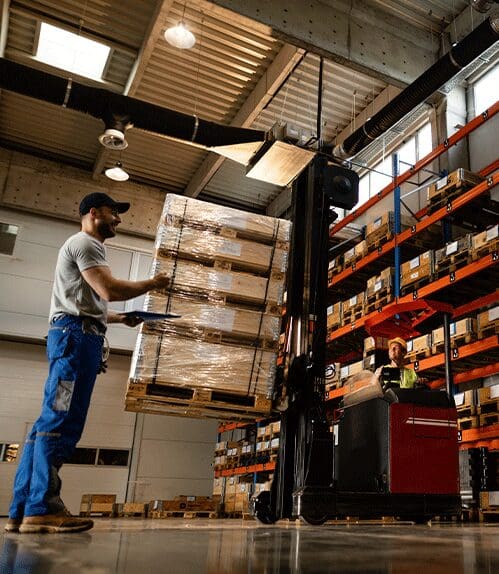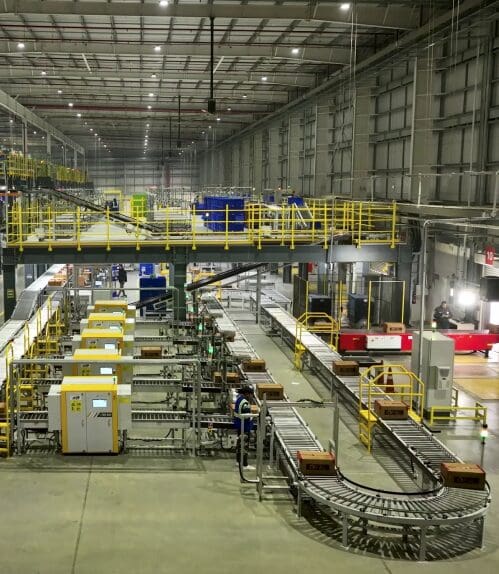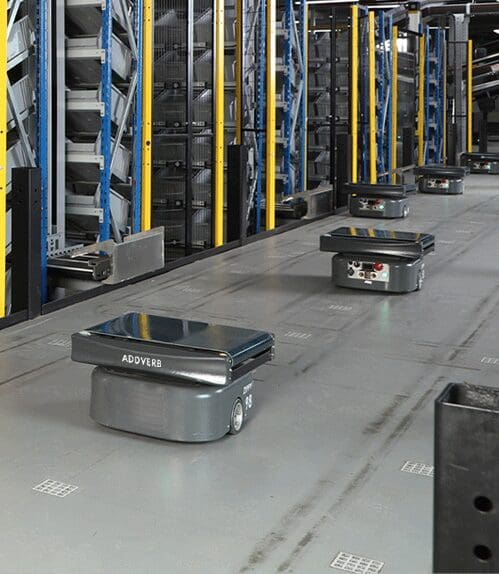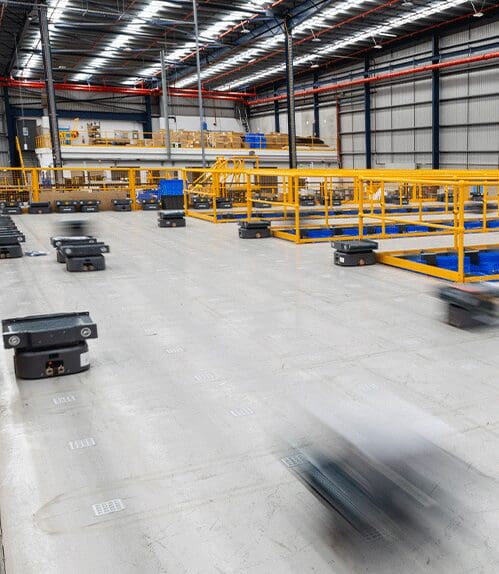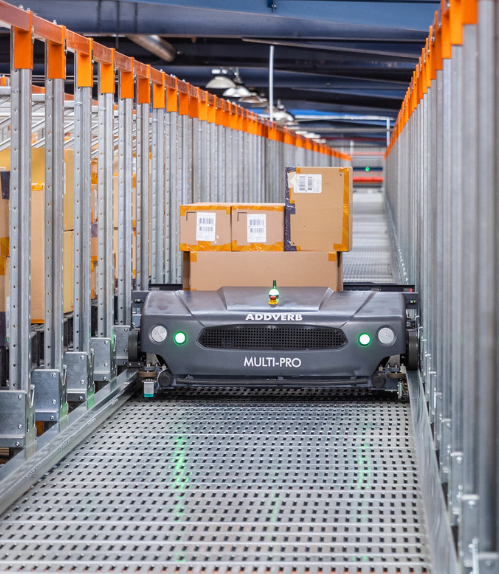Under the theme of Industry 4.0, Automation driven by mobile robots has revolutionised modern business operations. These robots have evolved to support a wide range of industries, from logistics to healthcare. Today, mobile robots are indispensable in sectors like manufacturing, FMCG, military, healthcare, and logistics.
The mobile robots market size is projected to grow from $17.45 billion in 2024 to $140.1 billion by 2035, representing a CAGR of 20.85%
In this blog, we will talk about the different types of mobile and thier industrial applications
Types of Mobile Robots and Their Industry Applications
Mobile robots come in various forms, each suited to different tasks and industries. Let’s explore the main types and where they fit best:
Autonomous Mobile Robots (AMRs)
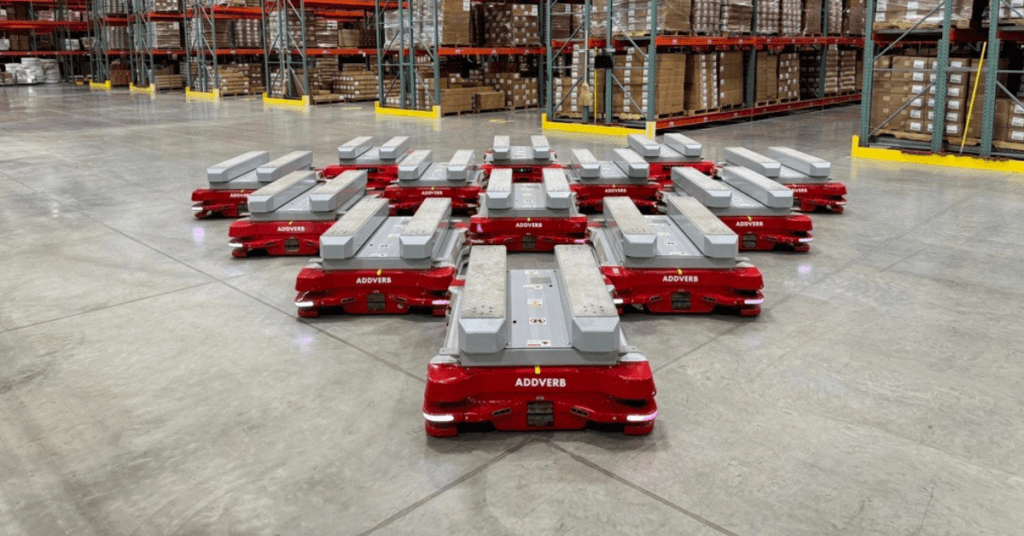
AMRs navigate using sophisticated sensors and AI-based software to map their surroundings dynamically. They’re highly flexible and ideal for industries requiring high operational flexibility, like e-commerce fulfilment centres, electronics, automotive, heavy manufacturing and healthcare.
Automated Guided Vehicles (AGVs)
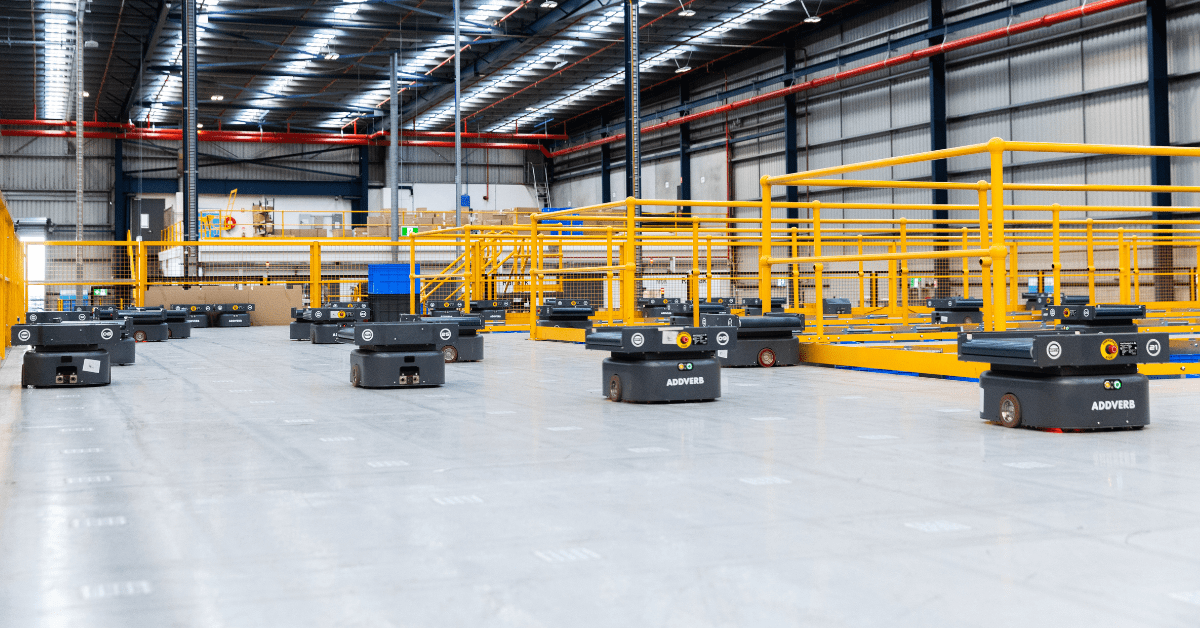
AGVs follow predefined paths using magnetic strips, wires, or lasers. These are well-suited for industries like Food & Beverage, Chemical, Hospitals, Manufacturing, Pharmaceutical, and Paper, where repetitive transportation of materials is needed. AMRs also optimise the travel distance by calculating the shortest path for every mission & drive efficiency in the warehouse.
Autonomous Forklift
The FlowT Autonomous Forklift is designed to revolutionize the way materials are handled, making operations smoother and more efficient than ever before. Utilizing cutting-edge LiDAR-based SLAM technology, the FlowT ensures precise navigation, allowing it to seamlessly maneuver through any automated warehouse environment with ease, day in and day out. They are widely used in the food & beverage and logistics industries.
Rail Guided Vehicle/Cart (RGV)
RGV is a fast, flexible, and easily installed material transport system that travels at a predefined path guided by rails or tracks. Rail Guided Vehicle has separate input/output stations that allow it to perform multiple operations at once. It is suited for industries where high-volume material handling is required like steel and heavy manufacturing, textile, automotive, and distribution.
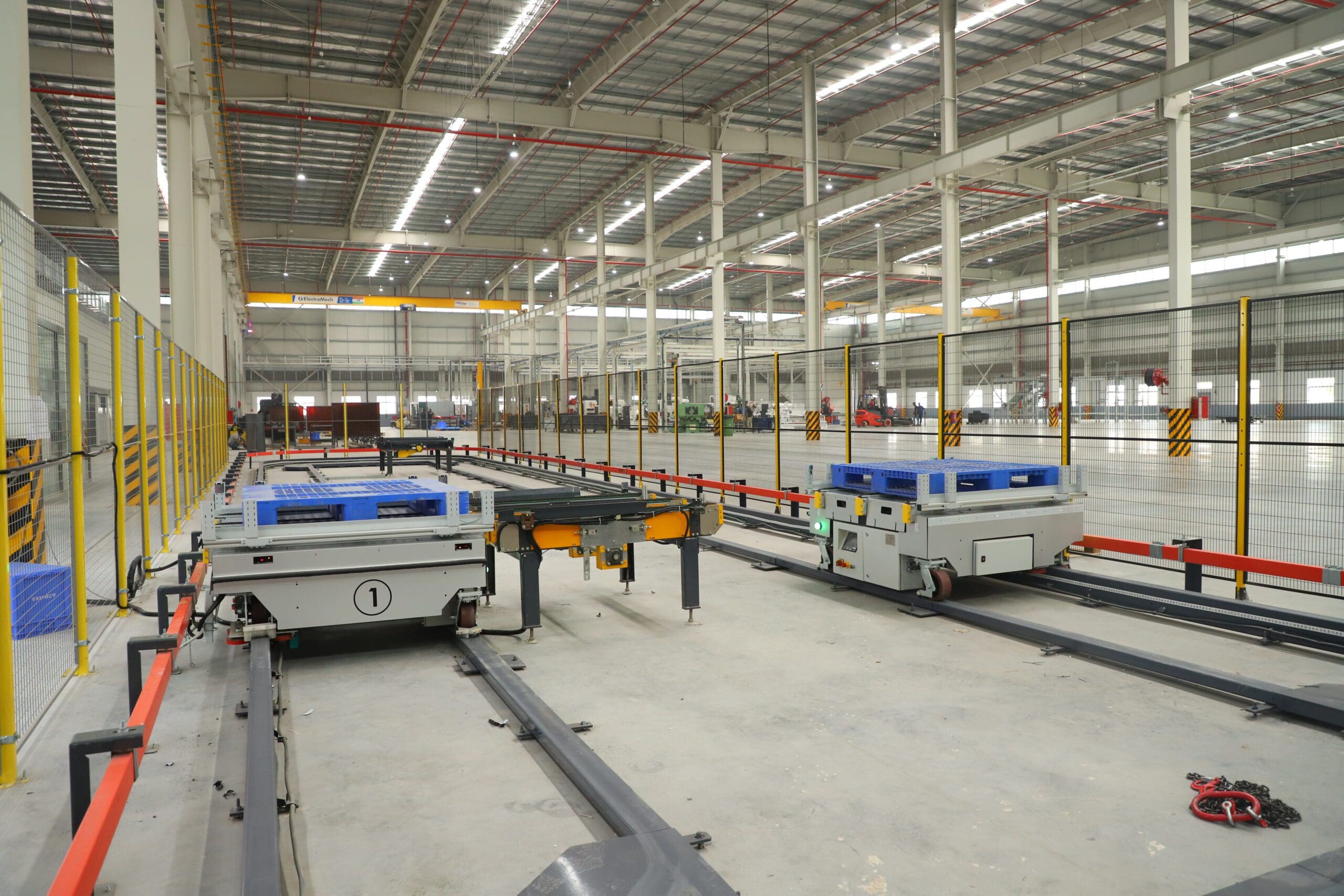
Applications Across Key Industries
Despite their ubiquitous presence, here’s how these robots are impacting specific industries:
Manufacturing & Assembly Lines
Mobile robots with ASRS system transport semi-finished or finished goods between production and warehousing areas. This is particularly crucial in the automotive and electronics industries, where thousands of components are assembled, ensuring smooth internal logistics.
AMRs with robotic arms automate pick-and-place operations, ensuring high precision and speed. This is commonly seen in the paper and fast-moving consumer goods (FMCG) industries for bin-picking and order fulfilment tasks.
Paper Industry
Paper roll handling is sensitive and labour-intensive. AGVs and AMRs have revolutionized this by automating the transportation of large paper rolls and pallets of paper sheets, significantly reducing damage and enhancing material flow efficiency. Mobile robots integrated with down-ender systems enable vertical paper roll warehousing and horizontal transportation.
Electronics Industry
In the electronics sector, cleanliness, precision, and flexibility are paramount. AMRs provide a solution by transporting delicate components across production lines, ensuring minimal human intervention and safeguarding the high-quality standards expected from the industry.
Food & Beverage Industry
With ever-increasing SKUs and the demand for fast supply chain operations, mobile robots such as the piggyback models are used for pallet transportation. Equipped with conveyors, these robots manage pallet pick-up and drop-off laterally, contributing to faster distribution processes.
Healthcare & Hospitals
In multi-specialty hospitals, AMRs are used to transport medical supplies, linens, and medicines. Their ability to interact with one another and avoid collisions makes them indispensable in environments where human staff walk long distances to manage day-to-day operations. Hospitals worldwide are now adopting mobile robots to reduce human errors and improve response times.
Logistics and Warehousing
Mobile robots with conveyor modules are widely used to transport materials between fixed conveyor systems, such as moving products from depalletizing stations to shelving units or from production lines to dispatch centres. This application is particularly suited to warehouses dealing with high volumes of materials.
Curious about warehouse automation? Dive into our other blogs to discover more
The Way Forward: Mobile Robots as Lean Manufacturing Enablers
As industries aim for lean manufacturing, robots will play an increasingly critical role. With advancements in AI and machine learning, these robots will become more intelligent, adaptable, and integral to operations.
AMRs are transforming industries, from manufacturing to healthcare. Their adaptability, precision, and ability to integrate into different operational processes are reshaping how industries function. As they continue to evolve, mobile robots will be key to driving more efficient, connected, and leaner operations across the globe.
FAQ
What are the common industrial applications of MR?
Material transport, picking, inventory management, and assembly line support.
How do robots improve operational efficiency?
They reduce labour, minimize errors, and speed up production.
Which industries benefit most from mobile robots?
Manufacturing, logistics, retail, healthcare, and automotive.
What types of mobile robots are used in industries?
AMRs, AGVs, and collaborative robots are commonly used.
How do MR ensure safety?
They use sensors and cameras to avoid obstacles and ensure safe navigation.
What are the benefits over traditional automation?
More flexible, scalable, and require fewer infrastructure changes.
Are MR suitable for small businesses?
Yes, they offer affordable, scalable automation solutions.
Founded in 2016, Addverb offers complete robotics solutions for warehouse and industrial automation, with a strong global presence through its subsidiaries worldwide. The company provides a range of in-house automation products, including Autonomous Mobile Robots, ASRS, and sorting technologies. It serves over 350+ clients, including well-known companies such as Coca-Cola, Amazon, and DHL.
